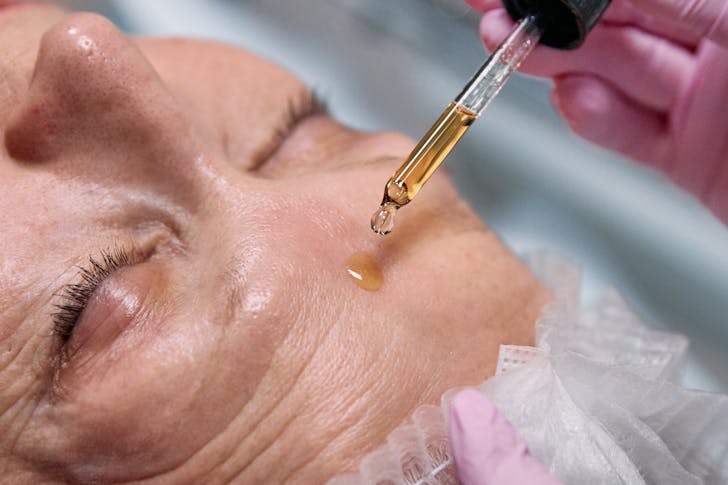
What Are Growth Factors in Skin Care? Everything You Need to Know

In the ever-evolving world of skincare, growth factors have emerged as a key player in the fight against aging. With promises of firmer, smoother, and more youthful skin, it’s no wonder these tiny proteins have captured the attention of beauty enthusiasts and skincare experts alike. But what are growth factors in skin care, and how do they work in your routine?
What Are Growth Factors in Skin Care?
Growth factors are naturally occurring proteins in the human body that communicate with cells, directing them to perform specific tasks. In skincare, these proteins are formulated into products to enhance skin rejuvenation, improving firmness, elasticity, and overall skin texture.
How Do Growth Factors Work in Skin Care?
Growth factors in skincare act by stimulating the skin’s natural healing processes. When applied topically, they send signals to skin cells, such as fibroblasts, to produce more collagen and elastin. This increased production leads to firmer, smoother skin. The theory is that growth factors can trigger a chain reaction, even if they don’t deeply penetrate the skin. This surface-level interaction is believed to send rejuvenating messages to deeper layers.

KATRIN BOLOVTSOVA | Pexels | Growth factors in skincare act by stimulating the skin’s natural healing processes.
The Safety of Growth Factors in Skin Care
One common concern is whether using growth factors in skin care could lead to cancer. The worry stems from certain growth factors, like VEGF (vascular endothelial growth factor), which are found in higher levels in some cancers, such as melanoma. However, current research indicates that topically applied growth factors do not increase cancer risk. The molecules in these products are too large to penetrate the epidermis and enter the bloodstream, where they could potentially cause harm.
How Are Growth Factors Used in Skin Care Products?
Growth factors used in skincare are often derived from human fibroblast conditioned media (HFCM) or bioengineered plants. HFCM contains a balanced mix of growth factors and other compounds that mimic the natural secretion of these proteins in the body. Some growth factors are also created in laboratories using advanced biotechnological methods. These lab-created growth factors are said to be just as effective as their human-derived counterparts, though direct comparative studies are limited.
What Are the Benefits of Using Growth Factors in Skin Care?
Growth factors can provide numerous benefits for aging skin. Encouraging collagen and elastin production, they help improve skin’s firmness and elasticity, reduce fine lines, and enhance overall texture. They are particularly beneficial for those who find other anti-aging ingredients, like retinoids, too irritating. Growth factor serums are often praised for delivering noticeable results without causing significant irritation.

cottonbro studio | Pexels | Growth factor serums are often praised for delivering noticeable results without causing significant irritation.
Concerns and Considerations
While growth factors offer promising results, there are some considerations to consider. These products can be expensive due to the complex and costly production processes involved. Additionally, the relatively recent introduction of growth factors in skincare means that long-term studies are still limited. Consumers may also feel uneasy about the origins of some growth factors, particularly those derived from human cells, although strict screening processes ensure safety.
Alternatives to Growth Factors
For those hesitant about using growth factors, there are plenty of other effective anti-aging ingredients available. Retinol, for example, is a well-known option that also boosts collagen production and improves skin texture. Other alternatives include peptides, antioxidants, and hyaluronic acid, which can all contribute to maintaining youthful skin without the need for growth factors.
More in Skin Care
-
`
How to Plan a Trip to Italy and Greece
Italy and Greece stand out as two of Europe’s premier travel destinations, each offering a unique blend of historical grandeur, stunning...
July 31, 2024 -
`
Are Makeup Wipes Bad for Your Skin?
In the quest for quick and convenient skincare, makeup wipes often seem like a miracle solution. However, if you’re wondering, Are...
July 26, 2024 -
`
How to Do Ab Workouts During Pregnancy?
Maintaining core strength is vital, but can you do ab workouts while pregnant? This question is common among expectant mothers eager...
July 19, 2024 -
`
5 Seamless Ways to Minimize BBL Scars
Undergoing a Brazilian Butt Lift (BBL) is an exciting decision for enhancing your body contour. However, BBL scars can be a...
July 12, 2024 -
`
Best Places for Birthday Party Fun for All Ages
Celebrating your birthday at an exciting venue can add that extra spark to your special day, whether you’re with family, friends,...
July 2, 2024 -
`
Skincare for Sensitive Skin: Top 6 Products to Try
Taking care of sensitive skin can be a challenge. With so many products on the market, finding the right ones that...
June 28, 2024 -
`
How to Build Muscles & Gain Mass After 50
Are you wondering how to build muscle mass after 50? You are not alone. Many people think that hitting the big...
June 20, 2024 -
`
How to Speed Up Your Nose Job Recovery Time
Undergoing a rhinoplasty is an exciting step towards a new appearance, but it comes with a recovery period that requires patience...
June 15, 2024 -
`
Best Tattoo Ideas for Women With Meaning
Are you on the hunt for tattoo ideas for women with meaning? Tattoos are more than just body art; they’re personal...
June 4, 2024















You must be logged in to post a comment Login